Tools
Outline
2D Image editing software
3D Software
Augmented Reality Software
WEB AR + VR Software
Photogrammetry
Video Editing Software
3D Models
//////////////////////////////////////////////////////////////////////
2D Image Editing Software
GIMP (GNU IMAGE MANIPULATION PROGRAM)
//////////////////////////////////////////////////////////////////////
3D Software
Blender 3D
Free and Open Source
Blender is a public project hosted on blender.org, licensed as GNU GPL, owned by its contributors.
For that reason Blender is Free and Open Source software, forever. Learn more
//////////////////////////////////////////////////////////////////////
Autodesk Maya
Free Trial - 1 month for everyone
Free for
+
You need to confirm your edu status.
//////////////////////////////////////////////////////////////////////
Autodesk 3DMax
Free Trial - 1 month for everyone
Free for teachers and students
//////////////////////////////////////////////////////////////////////
Free Trial - 1 month for everyone
//////////////////////////////////////////////////////////////
Photogrammetry
3DF ZEPHYR - FREE (50 images)
https://www.3dflow.net/3df-zephyr-photogrammetry-software/
Smoothie-3D
Smoothie-3D was one of the first image converter tools widely available. Recently it’s moved from being 100% free to a donation model. You can upload an image and use the provided tools to draw an outline around it. The program then generates a 3D render based on the outlined image, which can be exported as a slicer-compatible file type, such as OBJ or STL. Symmetrical images are recommended, as details on asymmetrical ones might be lost from the tracing.
Aside from tracing an outline to create a 3D image, Smoothie-3D also allows you to morph the image into predetermined shapes like cones, cylinders, and more. You can even change the camera orientation to see how the image looks from multiple angles.
- Difficulty: Medium
- Customizability: Medium
- Output formats: OBJ, STL, VRML 2, USDZ
- Cost: By donation of at least $2.50 (desktop version); ~$3 (iPad version)
- Supported platforms: Any (online)
t/
Selva3D
Selva3D is a more recent addition to the image converter scene. It automatically traces out a 3D design based on a few manageable settings, rather than relying on user-drawn parameters like Smoothie-3D.
It has two main settings: Logos, for designs with higher contrast and fewer colors, and Photographs, for real-life pictures. From within the site, you can manipulate the threshold (including or excluding parts of your picture from the conversion) and the height of the model. You can download a standard STL file for free, or a higher quality version for a small fee. (You’ll need to prepurchase “credits”.)
When we made an account with this service, our browser warned us that the login screen was not secure, and that our username and password might be compromised. As always, it’s best to create a unique password, and use an email address without sensitive information in it.
- Difficulty: Low
- Customizability: Low
- Output format: STL
- Cost: Free (fee to export higher quality)
- Supported platforms: Any (online)
Blender
Blender is a free, open-source 3D modeling program that’s increasingly used by professional animators, engineers, and designers, as it’s robust, customizable, and complex, with hundreds of settings and options. If you’re not already familiar with Blender, here’s a list of tutorials to help you get acquainted.
Once you’re ready to tackle something more advanced, the Face Builder add-on will allow you to import photos into the program. Create a mesh outline around the head, place pins where you want to anchor it (nose, cheeks, lips, etc.), and shape the mesh to the head. Textures from the photograph can be added to create a close likeness to the subject.
One thing to note: While Blender itself is free, Face Builder has a free trial. 15 days after first installing, it will cost ~$150 for a personal license or ~$300 for a commercial license to continue using it.
- Difficulty: High
- Customizability: High
- Output format: STL
- Cost: Free
- Supported platforms: Blender, MacOS, Linux
Tinkercad
CAD (computer-aided design) software is the standard toolkit used in industrial design, whether for cars, houses, or products. With so many to choose from, it’s difficult to pin down which is the best to use to create 3D photographs.
One thing CAD programs have in common is the Extrude tool, which takes a 2D drawing and makes it a 3D image by increasing the height. Depending on the user’s skill, this tool could be used to create a 3D model, with some tweaking.
One particularly accessible CAD program is Tinkercad, which is browser-based and very easy to get started with. For a simple task like extruding an image to an STL, it’s the perfect tool; you’ll just need to convert your photo to an SVG first so that Tinkercad can read it.
- Difficulty: Low
- Customizability: Very high
- Output formats: STL, OBJ
- Cost: Free
- Supported platforms: Any (online)
3D Face Reconstruction
In 2017, Aaron Jackson released his AI-assisted photo enhancement program as part of his PhD in computer science. The program applies deep learning techniques to photos of human faces, turning them into instant 3D renders with almost no human input. The result is detailed enough to be turned into a recognizable model of the subject when 3D printed.
If that’s not strange enough, researchers are looking into AI-generated photographs, which create human faces and models that don’t actually exist but are a product of the artificial intelligence’s “imagination“.
- Difficulty: Very low
- Customizability: Very low
- Output format: OBJ
- Cost: Free
- Supported platforms: Any (online)
PhotoToMesh
PhotoToMesh is the only downloadable lithophane program on this list, and the only one that requires purchase – although there’s a free demo version that users are encouraged to give a try before purchasing the program. There are two versions that are available for purchase, for ~$35 and ~$50 respectively, each for a single user.
- Difficulty: Low
- Customizability: High
- Output format: STL
- Cost: ~$35 or ~$50
- Supported platform: Windows
Cura
Cura is a slicer, a program that translates 3D models into code that 3D printers can read and therefore print with. While it’s not a lithophane program specifically, it has the ability to create lithophanes quite easily. Simply load the JPG that you wish to print into Cura, and a dialog box will pop up. Leave most of the settings at their default values, ensuring that “Darker is Higher” is selected, and dial the Smoothing bar to the left, as smoothing can blur the image.
Once the file is loaded onto the build plate with the above options, set the infill to 100%. This allows the light to shine through without distracting infill pattern artifacts, like lines or squares. After that, simply hit “Slice” and load it onto your printer.
- Difficulty: Medium
- Customizability: Medium
- Output format: G-code
- Cost: Free
- Supported platforms: Windows, MacOS, Linux
Lithophane Maker
Lithophane Maker lives up to its name, and delivers high-quality 3D photographs that can be used as lampshades, wall hangings, and even ceiling fan covers. While the program doesn’t have have as many bells and whistles as others on this list, the results make great gifts for family and friends!
- Difficulty: Low
- Customizability: High
- Output format: STL
- Cost: Free
- Supported platforms: Any (online)
Image to Lithophane
Image to Lithophane is one of the list’s easiest programs to use. Simply upload your photo, pick the desired shape (including dome, half dome, and heart) and download your new lithophane, all for free! There are also customization options tucked away at the top of the screen.
- Difficulty: Low
- Customizability: Medium
- Output format: STL
- Cost: Free
- Supported platforms: Any (online)
ItsLitho
Probably the most robust lithophane program in this list, ItsLitho is a fully fledged ecosystem, with tutorials, a lithophane maker, and even a storefront that sells PLA and 3D printers.
A great feature of ItsLitho is the variety of options you have to create the exact print you want. You can flip the image you import into the program, adjust light intensity, and even preview differently colored materials to know exactly what you’re getting, before you hit “print”. They also have an account system to keep track of your lithophanes so you don’t lose all your hard work.
- Difficulty: Medium
- Customizability: High
- Output format: STL
- Cost: Free
- Supported platforms: Any (online)
Metashape
Similar to Context Capture but more affordable, Agisoft’s Metashape has a couple of paid options. The standard edition can process data from multiple cameras at once and render them into 3D models or stitch together panoramic shots, among other possibilities. The professional edition has more options, such as accurately measuring terrain features and distances, even from satellite imagery.
The standard edition costs less than $200, while the professional edition is a one-off purchase of around $3,500. Both start with a 30-day free trial.
- Difficulty: Medium
- Customizability: High
- Output format: OBJ
- Cost: ~$180 (standard) or ~$3,500 (professional); free trial available
- Supported platform: Windows
Recap Pro
From Autodesk, the same people who make AutoCAD, comes Recap Pro, a cloud-based subscription service. Like the other options on this list, it compiles a number of photos taken to create a fully immersive 3D model, though specifically for use with drones. At around $40 per month or $325 for a year’s subscription, it’s a solid middle-of-the-road option, also with a free trial.
- Difficulty: High
- Customizability: High
- Output format: OBJ
- Cost: ~$40/month or ~$325/year; free trial available
- Supported platform: Windows
//////////////////////////////////////////////////////////////////////
Augmented Reality Software
FREE
Unity + AR Kit, AR Core, and more..
FREE!!!!
Adobe Aero
https://www.adobe.com/products/aero.html
&
App- https://apps.apple.com/us/app/adobe-aero/id1401748913
https://www.blippar.com/build-ar
should be free
//////////////////////////////////////////////////////////////
WEB AR + VR Software
Recommended
<model-viewer>
Sketchfab
https://sketchfab.com/3d-models/popular
more
Getting started
The following list shows the most used JavaScript frameworks and APIs for building immersive experiences that currently dominate the market and are widely accepted and adopted by XR developers:
- WebGL : You can access the WebXR Device APIs directly by using WebGL APIs.
- Babylon.js – Babylon is a JavaScript 3D engine that makes developing 3D content and immersive applications easy.

- Three.js : is a popular 3D library for creating immersive experiences.
- React-XR: React components and hooks for creating VR/AR experiences in react-three-fiber applications.

- A-Frame – A-frame is a declarative JavaScript framework that you can use to get started with Virtual Reality on the Web. To learn more, check out the
- Model-viewer : custom HTML element for displaying 3D models and viewing them in AR
- Unity WebXR : It lets you create your VR/AR experiences using Unity, and view them directly on your Web browser.
How to test WebXR development on your PC?
Developers without access to an XR device may use the WebXR Emulator to test their applications through the following browsers.
- Microsoft Edge: Windows Mixed Reality and the new Microsoft Edge – Mixed Reality | Microsoft Docs
- Firefox: Firefox Reality 12 (mozvr.com)
- Chrome: WebXR emulator extension (mozvr.com)
What do I need to start creating my first WebXR app?
- A Code Editor: Like a text editor, a code editor allows you to type the syntax of a program into a document. Throughout all my articles, I use Microsoft’s Visual Studio Code editor (VS Code). It is cross-platform, popular, powerful, and free. Documentation for Visual Studio Code
//////////////////////////////////////////////////////////////
Video Editing Software
Adobe After Effects
Blender
//////////////////////////////////////////////////////////////
3d Warehouse
https://3dwarehouse.sketchup.com/
Sketchfab
https://sketchfab.com/augmentedrealitygraffiti
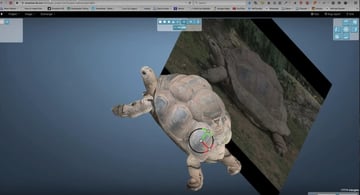

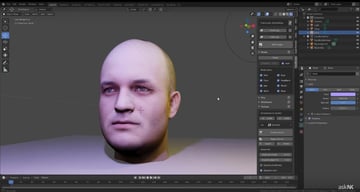

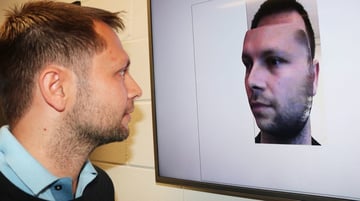
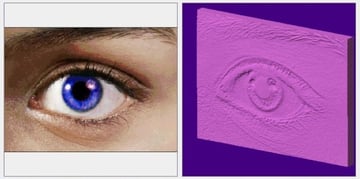
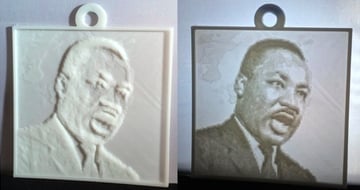
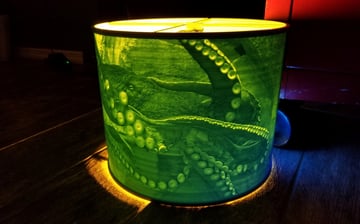
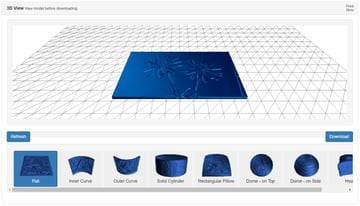
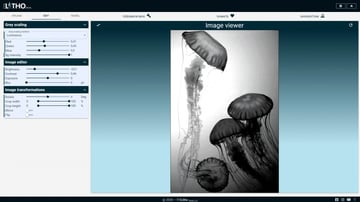
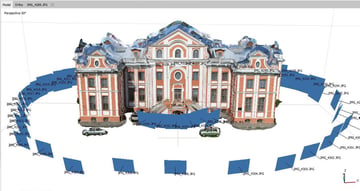
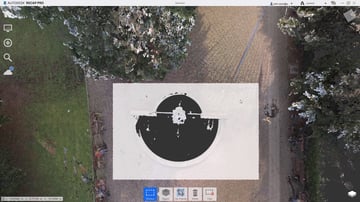
Comments
Post a Comment